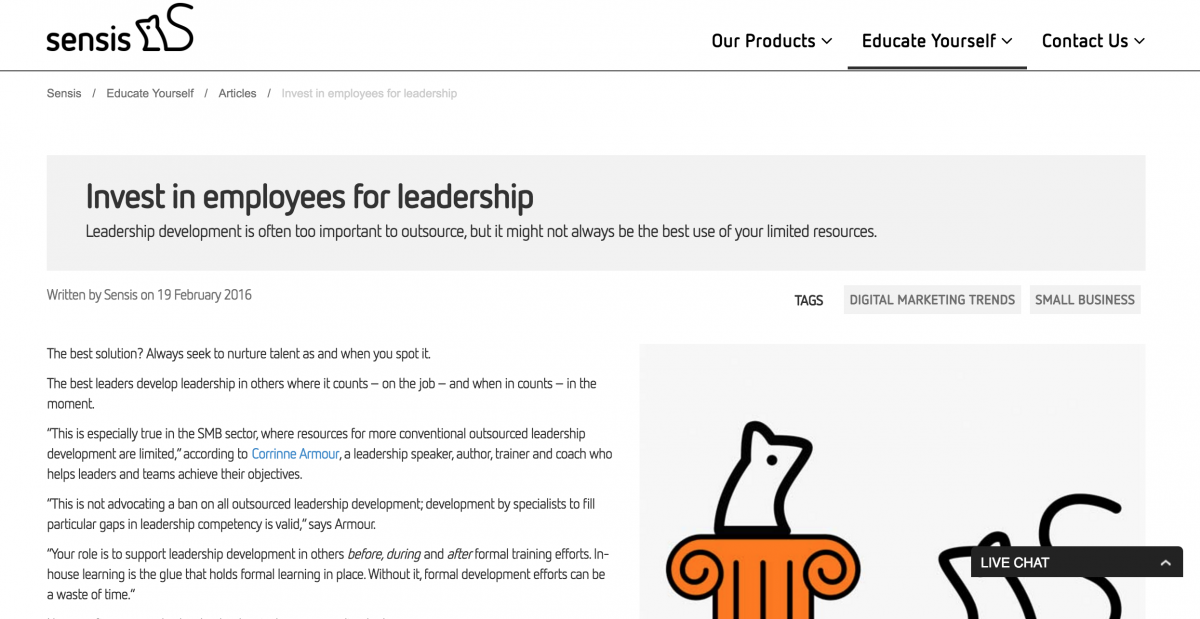
The best solution? Always seek to nurture talent as and when you spot it.
The best leaders develop leadership in others where it counts – on the job – and when in counts – in the moment.
“This is especially true in the SMB sector, where resources for more conventional outsourced leadership development are limited,” according to Corrinne Armour, a leadership speaker, author, trainer and coach who helps leaders and teams achieve their objectives.
“This is not advocating a ban on all outsourced leadership development; development by specialists to fill particular gaps in leadership competency is valid,” says Armour.
“Your role is to support leadership development in others before, during and after formal training efforts. In-house learning is the glue that holds formal learning in place. Without it, formal development efforts can be a waste of time.”
Here are five reasons to develop leaders in-house, according to Armour:
1. It saves you money
Sending leaders on training programs and outsourcing your leadership-building initiatives can be an expensive and sometimes ineffective solution with a poor return on investment. But with 86% of HR and business leaders surveyed by Deloitte citing leadership as one of their most important challenges it simply cannot be ignored.
2. It helps with succession planning
Leadership is needed at all levels, and as a leader, you should be offering those around you the opportunity to demonstrate their potential and develop with their role and the company as a whole. It’s important to not just focus on the ‘rising stars’ or the executive team. In fact, inspiring others and having a strong awareness of each team member’s strengths are some of the qualities that separate bosses from true leaders, and as a result, you will have greater control over succession planning, which is critical in a SMB.
3. It can save you time
Development on the job avoids the need to send team members away from the workplace for days at a time. Developing leadership skills in-house, which your people need in order to be more effective in their role, means less time spent on correcting errors and providing supervision, and more time getting on with the job.
4. You can see immediate results
Conducting one-off training events is not always a very effective use of your time. Only 15% of formal learning is applied back into the workplace – 85% of learning content is wasted. Instead, real-time leadership development delivered on the job will inspire individuals to strengthen their skills and improve on weaknesses.
5. It lifts your brand
The workforce of today is hungry for progress, and the right candidates are attracted to a reputation for ongoing development of potential. A 2014 study surveyed 899 individuals globally about their relationship to feedback and found people wanted corrective feedback more than praise, if it were provided in a constructive manner. In fact, 72% said their performance would improve if their manager provided corrective feedback.
STAY IN THE LOOP

